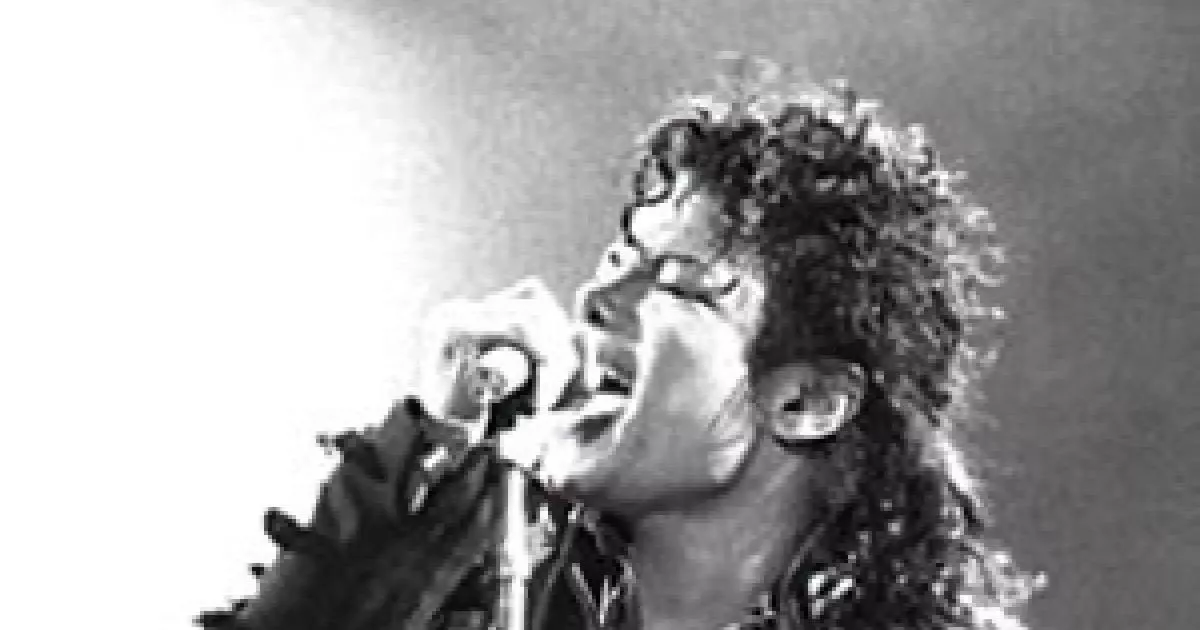Michael Joseph Jackson, the "King of Pop," was a highly influential American singer, songwriter, dancer, and philanthropist. His four-decade career broke racial barriers and made him a global icon. He popularized dance moves like the moonwalk, the robot, and the anti-gravity lean, significantly impacting visual performance in popular music. Guinness World Records recognizes him as the most successful entertainer of all time.
August 29, 1958: Michael Jackson's Birth
On August 29, 1958, Michael Joseph Jackson was born. He would later be known as the "King of Pop".
1964: Joined the Jackson Brothers
In 1964, Michael Jackson, along with his brother Marlon, joined the Jackson Brothers as backup musicians, playing congas and tambourine.
1964: Debut with the Jackson 5
In 1964, at the age of six, Michael Jackson made his public debut as a member of the Jackson 5 with his brothers.
1965: Shared Lead Vocals and Talent Show Win
In 1965, Michael Jackson began sharing lead vocals with Jermaine, and the group's name was changed to the Jackson 5. The group won a talent show the same year.
1966: Toured the Midwest
From 1966, the Jacksons 5 toured the Midwest, performing at black clubs and as an opening act for various artists.
August 1967: Apollo Theater Amateur Night Win
In August 1967, while touring the East Coast, the Jackson 5 won a weekly amateur night concert at the Apollo Theater in Harlem, marking a significant milestone in their early career.
1968: Signed with Steeltown Records and Brought to Motown
In 1968, The Jackson 5 recorded several songs for Steeltown Records, and were later brought to Motown after opening for Bobby Taylor.
1968: Jackson 5 Signed with Motown
In 1968, the Jackson 5 signed with Motown Records, achieving worldwide success with Michael Jackson as the lead singer.
1968: Toured the Midwest
Until 1968, the Jacksons 5 toured the Midwest, performing at black clubs and as an opening act for various artists.
1969: First Television Appearance
In 1969, The Jackson 5 made their first television appearance in the Miss Black America pageant.
January 1970: "I Want You Back" Reached Number One
In January 1970, "I Want You Back" became the first Jackson 5 song to reach number one on the US Billboard Hot 100.
May 1971: Moved to Hayvenhurst Estate
In May 1971, the Jackson family moved into a large house at Hayvenhurst in Encino, California, marking a new chapter in their lives.
1971: Jackson met Choreographer David Winters
In 1971, Choreographer David Winters met Michael Jackson while choreographing the Diana Ross TV special Diana!, during which Winters noted that Jackson watched the musical West Side Story almost every week, his favorite film that he paid tribute to in later works.
1971: Michael Jackson's Voice Changed
In 1971, Michael Jackson's voice began to change from boy soprano to lyric tenor, with his vocal development being positively noted by music journalists throughout his music releases.
1972: Released Solo Albums
Between 1972, Michael Jackson released two solo studio albums with Motown: Got to Be There and Ben.
1973: Released Solo Album "Music & Me"
In 1973, Michael Jackson released the solo studio album with Motown: Music & Me.
1975: Released Solo Album "Forever, Michael"
In 1975, Michael Jackson released the solo studio album with Motown: Forever, Michael.
1975: Michael Jackson's Voice Changed
In 1975, Michael Jackson's voice began to change from boy soprano to lyric tenor, with his vocal development being positively noted by music journalists throughout his music releases.
1975: Left Motown and Signed with Epic Records
In 1975, the Jackson 5 left Motown, signed with Epic Records, and renamed themselves the Jacksons, marking a new phase in their career.
1976: Continued to Tour Internationally
In 1976, the Jacksons continued to tour internationally, releasing six more albums between 1976 and 1984.
1977: Starred in 'The Wiz'
In 1977, Michael Jackson moved to New York City to star as the Scarecrow in 'The Wiz', a musical film directed by Sidney Lumet.
1978: Wrote 'Shake Your Body (Down to the Ground)'
In 1978, Michael Jackson, as the group's main songwriter, wrote songs such as "Shake Your Body (Down to the Ground)".
1978: Underwent Rhinoplasty
In 1978, Michael Jackson, feeling unsatisfied with his nose, decided to have a rhinoplasty, marking the beginning of changes to his physical appearance.
1979: Release of 'Off the Wall'
In 1979, Michael Jackson achieved solo stardom with the release of his fifth album, 'Off the Wall'.
1980: Secured Highest Royalty Rate
In 1980, Michael Jackson secured the highest royalty rate in the music industry, receiving 37 percent of wholesale album profit.
1980: Jackson Inducted onto Hollywood Walk of Fame
In 1980, Michael Jackson was inducted onto the Hollywood Walk of Fame as a member of the Jacksons.
1980: Won Three American Music Awards
In 1980, Michael Jackson won three American Music Awards for his solo work, recognizing the success of 'Off the Wall'.
1980: Wrote 'This Place Hotel' and 'Can You Feel It'
In 1980, Michael Jackson, as the group's main songwriter, wrote songs such as "This Place Hotel" and "Can You Feel It".
1981: Recorded with Freddie Mercury
From 1981, Michael Jackson recorded demos with Queen's lead singer Freddie Mercury for a potential album of duets.
1981: Won Two American Music Awards
In 1981, Michael Jackson was the American Music Awards winner for Favorite Soul/R&B Album and Favorite Soul/R&B Male Artist.
1981: Off the Wall Displayed Maturation Into Adulthood
In 1981, Robert Christgau wrote that "Off the Wall" vividly showed Michael Jackson's maturation into an adult, with its "vocabulary of grunts, squeals, hiccups, moans, and asides".
1982: Thriller Marked a Fully Adult Voice
By 1982, with the release of Thriller, Rolling Stone noted that Michael Jackson was singing in a "fully adult voice" that was "tinged by sadness".
1982: Contributed to E.T. Audiobook and Released 'Thriller'
In 1982, Michael Jackson contributed "Someone in the Dark" to the audiobook for the film E.T. and released his sixth album, 'Thriller'.
1982: Release of 'Thriller'
In 1982, Michael Jackson released 'Thriller', which became the best-selling album of all time and revolutionized music videos.
March 25, 1983: Motown 25 Performance and Moonwalk Debut
On March 25, 1983, Michael Jackson reunited with his brothers for Motown 25: Yesterday, Today, Forever, where he debuted the moonwalk during his performance of "Billie Jean".
November 1983: PepsiCo Partnership
In November 1983, Michael Jackson and his brothers partnered with PepsiCo in a $5 million promotional deal, setting a record for celebrity endorsements.
1983: Thriller best-selling album worldwide
In 1983, Jackson's album Thriller, was the bestselling album worldwide.
1983: Release of Thriller Music Video
In 1983, Michael Jackson released "Thriller", a groundbreaking zombie-themed music video directed by John Landis, which significantly impacted MTV and broke racial barriers. It has been named the most successful music video ever.
1983: Vitiligo Observation
In 1983, Michael Jackson's dermatologist observed that he had vitiligo, a skin condition characterized by a loss of pigment in patches.
1983: Recorded with Freddie Mercury
Until 1983, Michael Jackson recorded demos with Queen's lead singer Freddie Mercury for a potential album of duets.
January 27, 1984: Pepsi Commercial Accident
On January 27, 1984, while filming a Pepsi commercial, pyrotechnics accidentally set Michael Jackson's hair on fire, causing second-degree burns to his scalp.
May 14, 1984: President Reagan Honors Jackson for Support of Charities
On May 14, 1984, President Ronald Reagan presented Michael Jackson with an award recognizing his support for alcohol and drug abuse charities and his involvement with the Ad Council's Drunk Driving Prevention campaign. Jackson also allowed the campaign to use his song "Beat It".
May 1984: Michael Jackson Dolls Appeared in Stores
In May 1984, dolls modeled after Michael Jackson appeared in stores, capitalizing on his global pop culture dominance.
November 20, 1984: ATV Music Publishing Bid
On November 20, 1984, Michael Jackson submitted a $46 million bid for the ATV Music Publishing catalog, which included the rights to most of the Beatles' material.
1984: Victory Tour
In 1984, Michael Jackson headlined the Victory Tour with his brothers, showcasing his solo material to over two million Americans. It was his last tour with the Jacksons.
1984: Recorded State of Shock with Mick Jagger
In 1984, Michael Jackson recorded "State of Shock" with Mick Jagger for the Jacksons' album Victory after his collaboration with Freddie Mercury ended.
1984: Jackson Honored with Presidential Public Safety Commendation
In 1984, Michael Jackson was honored with a "Presidential Public Safety Commendation" award by Ronald Reagan for his humanitarian endeavors.
1984: Jackson Inducted onto Hollywood Walk of Fame as Solo Artist
In 1984, Michael Jackson was inducted onto the Hollywood Walk of Fame as a solo artist.
1984: Time Magazine Recognition
In 1984, Time pop critic Jay Cocks wrote that "Jackson is the biggest thing since the Beatles," describing him as a phenomenon across various media and a "one-man rescue team for the music business".
1984: Continued to Tour Internationally
Until 1984, the Jacksons continued to tour internationally, releasing six more albums between 1976 and 1984.
June 1985: Tentative Offer to Buy ATV Music
In June 1985, Jackson learned of The Entertainment Company's tentative $50 million offer to buy ATV Music, which contained the publishing rights to nearly 4,000 songs.
August 10, 1985: Purchase of ATV Music Finalized
On August 10, 1985, Michael Jackson's purchase of ATV Music was finalized for $47.5 million.
1985: Charity Contributions
From 1985, Jackson donated $455,000 to the United Negro College Fund, and all profits from his single "Man in the Mirror" went to charity.
1985: "We Are the World" Release
In 1985, Michael Jackson co-wrote "We Are the World" with Lionel Richie, a charity single that raised $63 million for the poor in the US and Africa.
1985: Jackson Co-Wrote We Are the World
In 1985, Michael Jackson co-wrote the charity anthem "We Are the World"; this humanitarian theme became a recurring element in his lyrics and public image.
September 1986: "Wacko Jacko" Nickname
In September 1986, the British tabloid The Sun branded Michael Jackson "Wacko Jacko", a name Jackson came to despise.
1986: Vitiligo Diagnosis
In 1986, Michael Jackson was officially diagnosed with vitiligo, a condition that causes patches of skin to lose their pigment.
1986: Captain EO
In 1986, Michael Jackson worked with George Lucas and Francis Ford Coppola on the 3D film Captain EO, which ran at Disneyland and Epcot.
1986: Hyperbaric Chamber Rumors
In 1986, reports surfaced that Michael Jackson slept in a hyperbaric oxygen chamber to slow aging, which he initially denied.
September 12, 1987: Bad World Tour Start
On September 12, 1987, the Bad World Tour started.
1987: Release of 'Bad'
In 1987, Michael Jackson released the album 'Bad', which was the first album to produce five US Billboard Hot 100 number-one singles.
1987: Bad Album Release
In 1987, Michael Jackson's highly anticipated album Bad was released.
1987: Disassociation from Jehovah's Witnesses
In 1987, it was reported that Michael Jackson had disassociated himself from the Jehovah's Witnesses.
March 1988: Purchase of Neverland Ranch
In March 1988, Michael Jackson purchased 2,700 acres of land near Santa Ynez, California, to build Neverland Ranch.
1988: Fisk University Honored Jackson with Honorary Doctorate
In 1988, Fisk University honored Michael Jackson with an Honorary Doctorate of Humane Letters.
1988: Jackson Received MTV Video Vanguard Award
In 1988, Michael Jackson received the MTV Video Vanguard Award, later renamed in his honor in 2001.
1988: Moonwalk Autobiography and Film Release
In 1988, Michael Jackson released his autobiography, Moonwalk, and a film, Moonwalker.
1988: Bad Album Success
In 1988, Michael Jackson's Bad album was the bestselling album worldwide.
1988: Autobiography Release
In his 1988 autobiography, Michael Jackson said he had two rhinoplasty surgeries and a cleft chin surgery.
January 27, 1989: Bad World Tour End
On January 27, 1989, the Bad World Tour ended.
1989: American Music Award
In 1989, Jackson won an Award of Achievement at the American Music Awards after Bad generated five number-one singles.
1989: "Leave Me Alone" Video Wins Golden Lion Award
In 1989, Michael Jackson's "Leave Me Alone" video, though not officially released in the US, was nominated for three Billboard Music Video Awards and won a Golden Lion Award for its special effects.
1989: Annual Earnings
In 1989, Michael Jackson's annual earnings from album sales, endorsements, and concerts were estimated at $125 million.
1990: Grammy Award
In 1990, Bad won the Grammy Award for Best Music Video, Short Form for "Leave Me Alone".
1990: Jackson Honored as Artist of the Decade
In 1990, Michael Jackson was honored as the "Artist of the Decade" by George H. W. Bush.
1990: Artist of the Decade
In 1990, President George H. W. Bush designated Michael Jackson as the White House's "Artist of the Decade".
March 1991: Contract Renewal with Sony
In March 1991, Jackson renewed his contract with Sony for $65 million, which was a record-breaking deal at the time.
November 14, 1991: "Black or White" Video Premiered Globally
On November 14, 1991, Michael Jackson's "Black or White" music video simultaneously premiered in 27 countries to an estimated audience of 500 million people, featuring Macaulay Culkin, Peggy Lipton, and George Wendt. It also helped introduce morphing to music videos.
1991: Release of 'Dangerous'
In 1991, Michael Jackson released the album 'Dangerous', which saw him venture into an array of artistic sounds and became one of the most successful albums of the 1990s.
June 1992: Dangerous World Tour Begins
In June 1992, Michael Jackson's Dangerous World Tour began. He performed for over 3.5 million people in 70 concerts outside the US, and part of the proceeds went to Heal the World Foundation.
1992: Jackson Established Heal the World Foundation
In 1992, Michael Jackson established the Heal the World Foundation and donated millions from his Dangerous World Tour revenues.
1992: Founding of Heal the World Foundation
In 1992, Michael Jackson founded the Heal the World Foundation, donating an estimated $500 million to charity throughout his lifetime.
1992: Jackson Honored as Point of Light Ambassador
In 1992, Michael Jackson was honored as a "Point of Light Ambassador" by George H. W. Bush for inviting disadvantaged children to his Neverland Ranch.
1992: Jackson Invested as Titular King of Sanwi
In 1992, Michael Jackson was invested as a titular king of Sanwi, a traditional kingdom in the Ivory Coast.
1992: Dangerous album tops charts
In 1992, Michael Jackson's album Dangerous was the best-selling album of the year worldwide, and "Black or White" was the best-selling single of the year worldwide at the Billboard Music Awards.
January 1993: Super Bowl XXVII Halftime Performance
In January 1993, Michael Jackson performed at the Super Bowl XXVII halftime show in Pasadena, California, drawing 133.4 million viewers and increasing his album sales.
January 1993: American Music Awards
In January 1993, Michael Jackson won three American Music Awards: Favorite Pop/Rock Album for Dangerous, Favorite Soul/R&B Single for "Remember the Time", and the International Artist Award of Excellence.
February 10, 1993: Oprah Winfrey Interview
On February 10, 1993, Michael Jackson gave a 90-minute interview with Oprah Winfrey, discussing his childhood abuse, loneliness, and denying rumors. The interview became the most-watched television interview in United States history to date, with more than 90 million viewers.
August 1993: Child Sexual Abuse Allegations
In August 1993, Michael Jackson was accused of child sexual abuse by a 13-year-old boy, Jordan Chandler, and his father, Evan Chandler.
November 12, 1993: Cancellation of Dangerous World Tour
On November 12, 1993, Michael Jackson canceled the remainder of the Dangerous World Tour due to health problems, stress from the allegations, and painkiller addiction.
November 1993: End of the Dangerous World Tour
In November 1993, Michael Jackson's Dangerous World Tour came to an end. The tour grossed $100 million.
1993: "Remember the Time" Performance at Soul Train Music Awards
In 1993, Michael Jackson performed "Remember the Time" at the Soul Train Music Awards while sitting in a chair, due to a twisted ankle he sustained during dance rehearsals.
1993: Child Sexual Abuse Accusation
In 1993, Michael Jackson was accused of sexually abusing the child of a family friend, marking the beginning of controversy in his public image.
1993: Reaction to Child Molestation Accusations Reflected in Music Video
In 1993, Michael Jackson's song and video for "Scream" reflected his response to child molestation accusations, earning a record 11 MTV Video Music Award Nominations and winning several awards.
1993: Michael Jackson Grabs His Crotch on Stage
In a 1993 interview, Michael Jackson explained to Winfrey that his crotch-grabbing gestures were spontaneous reactions compelled by the music, particularly during the "Bad" video performances.
1993: Surgery Claims
In a 1993 interview, Michael Jackson stated that he had only had two rhinoplasty surgeries and a cleft chin surgery.
1993: Proposal to Lisa Marie Presley
In late 1993, Michael Jackson proposed to Lisa Marie Presley over the phone.
January 1994: Settlement with Chandlers
In January 1994, Michael Jackson settled out of court with the Chandlers for a reported total sum of $23 million regarding child sexual abuse allegations.
May 1994: Marriage to Lisa Marie Presley
In May 1994, Michael Jackson married Lisa Marie Presley in La Vega, Dominican Republic.
September 22, 1994: Investigation Closed
On September 22, 1994, citing a lack of evidence without Jordan's testimony, the state closed its investigation into the child sexual abuse allegations against Michael Jackson.
1994: Sonic the Hedgehog 3
In 1994, Michael Jackson composed music for the Sega Genesis video game Sonic the Hedgehog 3 but went uncredited.
June 1995: Release of HIStory: Past, Present and Future, Book I
In June 1995, Michael Jackson released the double album HIStory: Past, Present and Future, Book I. The album debuted at number one on the charts and has been certified for eight million shipments in the US.
December 1995: Separation from Lisa Marie Presley
In December 1995, Michael Jackson and Lisa Marie Presley separated.
1995: Release of 'HIStory'
In 1995, Michael Jackson released the album 'HIStory', which included "You Are Not Alone", "Earth Song", and "They Don't Care About Us".
1995: "You Are Not Alone" Grammy Nomination
In 1995, Michael Jackson's song "You Are Not Alone" received a Grammy nomination for "Best Pop Vocal Performance".
1995: Controversy over "They Don't Care About Us" lyrics
In 1995, The Anti-Defamation League complained about possible anti-semitism of the original lyrics in Michael Jackson's "They Don't Care About Us". Jackson released a revised version of the song.
July 1996: Performance for Sultan of Brunei's Birthday
In July 1996, Michael Jackson performed for Sultan Hassanal Bolkiah's fiftieth birthday at Jerudong Park Amphitheater.
September 7, 1996: HIStory World Tour Begins
On September 7, 1996, Michael Jackson's HIStory World Tour began.
1996: Brit Awards Performance
At the 1996 Brit Awards, Michael Jackson's performance of "Earth Song" was disrupted by Pulp singer Jarvis Cocker, who was protesting what Cocker saw as Jackson's "Christ-like" persona.
1996: Annual Income
In 1996, Forbes placed Michael Jackson's annual income at $35 million.
1996: Premiere of Michael Jackson's Ghosts
In 1996, Michael Jackson's Ghosts, a short film co-written with Stephen King, premiered at the Cannes Film Festival.
February 13, 1997: Birth of Michael Joseph Jackson Jr.
Michael Joseph Jackson Jr., commonly known as Prince, was born on February 13, 1997.
October 15, 1997: End of HIStory World Tour
On October 15, 1997, Michael Jackson's HIStory World Tour concluded. The tour grossed $165 million.
October 1997: Invincible Album Production Begins
In October 1997, Michael Jackson started working on his tenth solo album, Invincible, which became the most expensive album of all time to produce.
1997: Annual Income
In 1997, Forbes placed Michael Jackson's annual income at $20 million.
1997: Jackson 5 Inducted to the Rock and Roll Hall of Fame
In 1997, Michael Jackson and the Jackson 5 were inducted into the Rock and Roll Hall of Fame.
1997: Release of Blood on the Dance Floor: HIStory in the Mix
In 1997, Michael Jackson released Blood on the Dance Floor: HIStory in the Mix, which contained remixes of singles from HIStory and five new songs.
1997: Earth Song Video Nominated for Grammy
In 1997, Michael Jackson's "Earth Song" video was nominated for the Grammy for Best Music Video, Short Form.
April 3, 1998: Birth of Paris-Michael Katherine Jackson
Paris-Michael Katherine Jackson was born on April 3, 1998.
1999: Jackson 5 Inducted to the Vocal Group Hall of Fame
In 1999, Michael Jackson and the Jackson 5 were inducted into the Vocal Group Hall of Fame.
2000: Guinness World Records Recognition
In 2000, Michael Jackson was recognized by Guinness World Records for his extensive support of 39 charities, more than any other entertainer.
2000: Release of HIStory Album
In 2000, tracks on Michael Jackson's HIStory album conveyed an atmosphere of paranoia and retaliated against perceived injustice, isolation, and media criticism.
September 2001: Invincible Album Production Concludes
In September 2001, Michael Jackson completed work on his tenth solo album, Invincible, which was a costly endeavor.
September 2001: 30th Anniversary Concerts
In September 2001, two concerts were held at Madison Square Garden to celebrate Michael Jackson's 30th anniversary as a solo artist, featuring a reunion performance with his brothers.
October 21, 2001: United We Stand Benefit Concert
On October 21, 2001, Michael Jackson helped organize and performed at the United We Stand: What More Can I Give benefit concert in Washington, D.C., following the September 11 attacks.
October 30, 2001: Invincible Album Release
On October 30, 2001, Michael Jackson's album Invincible was released, marking his first full-length album in six years and the last of original material during his lifetime.
2001: Release of "You Rock My World" Music Video
In 2001, Michael Jackson released the music video for "You Rock My World," which featured Chris Tucker and Marlon Brando.
2001: Jackson Inducted to the Rock and Roll Hall of Fame as Solo Artist
In 2001, Michael Jackson was inducted to the Rock and Roll Hall of Fame as a solo artist.
2001: MTV Video Vanguard Award Renamed in Jackson's Honor
In 2001, the MTV Video Vanguard Award was renamed in honor of Michael Jackson, recognizing his significant impact on music videos.
January 9, 2002: American Music Award
On January 9, 2002, Michael Jackson received his 22nd American Music Award for Artist of the Century.
April 24, 2002: Performance at Apollo Theater
On April 24, 2002, Michael Jackson performed at the Apollo Theater in a fundraiser concert for the Democratic National Committee, which raised $2.5 million.
May 2002: Filming of "Living with Michael Jackson" Begins
Starting in May 2002, a documentary film crew led by Martin Bashir began following Michael Jackson, which would later result in the controversial documentary "Living with Michael Jackson."
July 2002: Accusations Against Tommy Mottola
In July 2002, Michael Jackson accused Sony Music chairman Tommy Mottola of racism and exploiting black artists at Al Sharpton's National Action Network in Harlem.
2002: Jackson Added to the Songwriters Hall of Fame
In 2002, Michael Jackson was added to the Songwriters Hall of Fame.
2002: "You Rock My World" Wins NAACP Image Award
In 2002, Michael Jackson's "You Rock My World" video won an NAACP Image Award for Outstanding Music Video.
2002: Net Worth Estimation
In 2002, estimates of Michael Jackson's net worth ranged from negative $285 million to positive $350 million.
October 2003: Key to the City of Las Vegas
In October 2003, Michael Jackson received the Key to the City of Las Vegas from Mayor Oscar Goodman.
November 18, 2003: Release of Number Ones
On November 18, 2003, Sony released Number Ones, a greatest hits compilation by Michael Jackson.
December 18, 2003: Child Molestation Charges
On December 18, 2003, Santa Barbara authorities charged Michael Jackson with multiple counts of child molestation and intoxicating a minor, which he denied.
2003: The Daily Telegraph Writer Tom Utley described Jackson as a "genius"
In 2003, The Daily Telegraph writer Tom Utley described Jackson as "extremely important" and a "genius", solidifying his legacy as a musical innovator and icon.
2003: Net Worth Estimation
In 2003, estimates of Michael Jackson's net worth ranged from negative $285 million to positive $350 million.
January 31, 2005: Start of The People v. Jackson Trial
On January 31, 2005, The People v. Jackson trial began in Santa Maria, California, involving charges of child molestation.
June 13, 2005: Acquittal on All Charges
On June 13, 2005, Michael Jackson was acquitted on all counts of child molestation in the People v. Jackson trial.
June 2005: Move to Bahrain
In June 2005, after the trial, Michael Jackson moved to Bahrain as a guest of Sheikh Abdullah.
2005: Acquittal of Child Sexual Abuse Allegations
In 2005, Michael Jackson was tried and acquitted of child sexual abuse allegations and all other charges.
April 2006: ATV Catalog Stake as Collateral
In April 2006, Michael Jackson agreed to use a piece of his ATV catalog stake as collateral against his loans from Bank of America.
September 2006: Departure from Two Seas Records
By September 2006, Michael Jackson was no longer affiliated with Two Seas Records, a Bahrain startup he had previously signed with.
2006: Most Famous Person in the World
In 2006, Craig Glenday, the Editor-in-Chief of Guinness World Records, called Michael Jackson the most famous person in the world, recognizing his global impact.
2006: Move to Ireland and Studio Work
In mid-2006, Michael Jackson moved to Grouse Lodge in Ireland to work on a new album with producers will.i.am and Rodney Jenkins.
2007: Net Worth Estimation
In 2007, estimates of Michael Jackson's net worth ranged from negative $285 million to positive $350 million.
2008: Thriller 25 Release
In 2008, Michael Jackson and Sony released Thriller 25 for the 25th anniversary of Thriller, featuring remixes.
March 2009: "This Is It" Concert Announcement
In March 2009, Michael Jackson announced a series of comeback concerts, "This Is It", at the O2 Arena in London.
June 25, 2009: Michael Jackson's Death
On June 25, 2009, Michael Jackson passed away, marking the end of the life of the iconic "King of Pop".
July 7, 2009: Memorial Service at Staples Center
On July 7, 2009, Michael Jackson's public memorial service was held at the Staples Center in Los Angeles, following a private family service.
July 13, 2009: "This Is It" Concerts Scheduled Start
The "This Is It" concerts were scheduled to begin on July 13, 2009, in London, but were canceled due to Michael Jackson's death.
July 2009: Lunar Republic Society Named Crater After Jackson
In July 2009, the Lunar Republic Society named a crater on the Moon after Michael Jackson.
August 2009: Jackson's Death Ruled a Homicide
In August 2009, the Los Angeles County Coroner officially ruled that Michael Jackson's death was a homicide.
September 3, 2009: Entombment at Forest Lawn
On September 3, 2009, Michael Jackson's body was entombed at Forest Lawn Memorial Park in Glendale, California.
October 2009: Release of "This Is It"
In October 2009, Michael Jackson's estate released the first posthumous song, "This Is It", co-written with Paul Anka, marking the beginning of posthumous releases.
December 2009: "Thriller" Preserved in National Film Registry
In December 2009, Michael Jackson's "Thriller" was selected by the Library of Congress as the only music video to be preserved in the National Film Registry, recognizing its enduring cultural importance.
2009: Auction Cancellation
In 2009, Michael Jackson arranged to sell a large collection of memorabilia but later canceled the auction in April.
2009: Death Due to Propofol Overdose
In 2009, Michael Jackson died from an overdose of propofol administered by his personal physician, Conrad Murray.
2009: Posthumous Awards and Record Sales
In 2009, Michael Jackson posthumously won four American Music Awards. In the year following his death, Jackson sold more than 35 million albums worldwide, surpassing any other artist in 2009, and became the first artist to sell one million music downloads in a week.
February 8, 2010: Murray Charged with Involuntary Manslaughter
On February 8, 2010, law enforcement officials charged Conrad Murray with involuntary manslaughter in connection to Michael Jackson's death.
March 6, 2010: "This Is It" Concerts Scheduled End
The "This Is It" concerts were scheduled to end on March 6, 2010, in London, but were canceled due to Michael Jackson's death.
March 2010: Sony Music Deal Extension
In March 2010, Sony Music signed a $250 million deal with the Jackson estate to extend distribution rights to Jackson's back catalog until at least 2017.
2010: Release of Michael Jackson: The Experience
For the 2010 holiday season, Ubisoft released a music video game featuring Jackson titled "Michael Jackson: The Experience" using motion-detecting camera systems.
2010: Jackson Inducted into the Dance Hall of Fame
In 2010, Michael Jackson was the first recording artist to be inducted into the Dance Hall of Fame.
2010: Release of Posthumous Album "Michael"
In late 2010, Sony released the first posthumous album, "Michael", along with the lead single "Hold My Hand", a duet with Akon.
April 2011: Unveiling of Michael Jackson Statue
In April 2011, a statue of Michael Jackson was unveiled outside Craven Cottage, the Fulham Football Club stadium, by chairman Mohamed Al-Fayed.
October 2011: Launch of Cirque du Soleil's "Michael Jackson: The Immortal World Tour"
In October 2011, Cirque du Soleil launched "Michael Jackson: The Immortal World Tour", a $57-million production, in Montreal.
2011: Conrad Murray's Conviction
In 2011, Conrad Murray, Michael Jackson's personal physician, was convicted of involuntary manslaughter in connection with Jackson's death.
2011: Murray Found Guilty
In late 2011, Conrad Murray was found guilty of involuntary manslaughter in the death of Michael Jackson and was held without bail while awaiting sentencing.
2012: Family Dispute Resolution and Guardianship
In 2012, Jermaine Jackson retracted his signature on a public letter criticizing the executors of Michael Jackson's estate, and T.J. Jackson was given co-guardianship of Michael Jackson's children.
2012: Extinct Hermit Crab Named After Jackson
In 2012, the extinct hermit crab Mesoparapylocheles michaeljacksoni was named in honor of Michael Jackson.
May 23, 2013: Opening of Michael Jackson: One
On May 23, 2013, Cirque du Soleil's "Michael Jackson: One", opened in a renovated theater at the Mandalay Bay resort in Las Vegas.
2013: Continued Album Sales After Death
By the end of 2013, Michael Jackson had sold over 50 million albums worldwide since his death, continuing his legacy.
2013: Top-Earning Dead Celebrity
Forbes recognized Michael Jackson as one of the top-earning dead celebrities, and placed him at the top spot from 2013 to 2023.
2013: Michael Jackson's Ghosts no longer the longest music video
In 2013, Michael Jackson's Ghosts lost its Guinness world record for the longest music video to Pharrell Williams' "Happy".
2013: Wade Robson Files Lawsuit
In 2013, Wade Robson filed a lawsuit alleging that Michael Jackson had sexually abused him for seven years, beginning when he was seven years old.
2013: Jackson Ranked as one of the Most Influential People of All Time
In 2013, a study ranked Michael Jackson as one of the most influential people of all time, placing him alongside Napoleon Bonaparte, underscoring his global recognition.
2013: Estate Tax Dispute
In 2013, the executors of Michael Jackson's estate filed a petition in the United States Tax Court due to a dispute with the Internal Revenue Service (IRS) over estate taxes.
February 2014: IRS Report on Estate Taxes
In February 2014, the IRS reported that Michael Jackson's estate owed $702 million; $505 million in taxes, and $197 million in penalties.
May 13, 2014: Release of "Xscape" Album
On May 13, 2014, "Xscape", an album of unreleased material, was released, and the lead single "Love Never Felt So Good" reached number 9 on the US Billboard Hot 100.
May 2014: Statue Moved to National Football Museum
In May 2014, the statue of Michael Jackson was moved to the National Football Museum in Manchester.
2014: James Safechuck Files Lawsuit
In 2014, James Safechuck filed a case alleging similar sexual abuse over a four-year period starting when Safechuck was ten.
2014: Top-Ten Single in Five Decades
In 2014, Michael Jackson became the first artist to have a top-ten single in the Billboard Hot 100 in five different decades, showcasing his enduring appeal.
2014: Jackson Inducted into the Rhythm and Blues Music Hall of Fame
In 2014, Michael Jackson was posthumously inducted into the Rhythm and Blues Music Hall of Fame.
2014: Jackson Identified as one of the Most Influential People of All Time
In 2014, a study by Young-Ho Eom at the University of Toulouse identified Michael Jackson as one of the most influential people of all time, using ranking methods like 2D Rank and PageRank algorithms.
2014: Jackson's Life Deemed One of the Most Important Cultural Moments
In 2014, the British Council of Cultural Relations considered Michael Jackson's life one of the 80 most important cultural moments of the 20th century.
2014: "There Must Be More to Life Than This" Release
In 2014, the song "There Must Be More to Life Than This", recorded with Freddie Mercury, was finally released.
2014: Queen Duet Release
Later in 2014, Queen released a duet recorded with Michael Jackson in the 1980s, showcasing archived musical collaborations.
2015: Dismissal of Robson's Case
In 2015, Wade Robson's case against Michael Jackson's estate was dismissed as it had been filed too late.
2016: Jackson Estate Earnings
In 2016, Forbes estimated annual gross earnings by the Michael Jackson Estate at $825 million, the largest ever recorded for a celebrity, mostly due to the sale of the Sony/ATV catalog.
September 29, 2017: Release of Compilation Album "Scream"
On September 29, 2017, the compilation album "Scream" was released, adding to Jackson's posthumous discography.
2017: Ruling on Accountability of Jackson's Corporations
In 2017, it was initially ruled that Michael Jackson's corporations could not be held accountable for his alleged past actions.
2017: Sony Music Deal Extended
In 2017, the Sony Music deal which was signed in March 2010 with the Jackson estate was extended, continuing their distribution rights to Jackson's back catalog.
July 2018: Sony/ATV Buys Estate's Stake in EMI
In July 2018, Sony/ATV bought the Jackson estate's stake in EMI for $287.5 million, marking a significant financial transaction related to Jackson's music assets.
August 2018: Career Pretax Earnings
In August 2018, Forbes reported that Michael Jackson's total career pretax earnings in life and death were $4.2 billion.
2018: Postmortem Earnings
In 2018, Michael Jackson's postmortem earnings were $400 million, bringing his total to $2.4 billion.
2018: National Portrait Gallery named Jackson the most depicted cultural figure of the century
In 2018, the National Portrait Gallery named Michael Jackson the most depicted cultural figure of the century, later suggesting his artistic influence rivaled that of Jesus Christ. Nicholas Cullinan highlighted Jackson's unprecedented impact on art.
February 21, 2019: Jackson Estate Sues HBO
On February 21, 2019, the Jackson estate sued HBO for breaching a non-disparagement clause from a 1992 contract related to the documentary Leaving Neverland.
March 2019: Removal of Statue
Following renewed sexual assault allegations, the statue was removed from display in March 2019.
March 2019: Release of "Leaving Neverland" Documentary
In March 2019, the documentary film "Leaving Neverland", detailing allegations by Robson and Safechuck, was released, causing controversy and backlash.
September 2019: Motion to Dismiss Denied
In September 2019, Judge George H. Wu denied HBO's motion to dismiss the case, allowing the Jackson estate to arbitrate.
2019: Countering Claims and Increased Album Sales
In 2019, after the release of "Leaving Neverland", documentaries presented information countering the claims, and Michael Jackson's album sales increased.
October 2020: Court Rules on MJJ Productions Inc.
In October 2020, the Los Angeles County Superior Court ruled that MJJ Productions Inc. employees were not legally obligated to protect Robson and Safechuck from Jackson.
October 20, 2020: Safechuck's Lawsuit Dismissed Again
On October 20, 2020, James Safechuck's lawsuit against Michael Jackson's corporations was again dismissed.
December 2020: Appeals Court Affirms Ruling
In December 2020, the appeals court affirmed Judge Wu's ruling, continuing the legal battle between the Jackson estate and HBO.
April 2021: Court Rules on MJJ Ventures Inc.
In April 2021, the Los Angeles County Superior Court ruled that MJJ Ventures Inc. employees were not legally obligated to protect Robson and Safechuck from Jackson.
April 26, 2021: Robson's Case Dismissed
On April 26, 2021, Wade Robson's case was dismissed due to a lack of supporting evidence that the defendants exercised control over Jackson.
2021: Jackson Inducted into the Black Music & Entertainment Walk of Fame
In 2021, Michael Jackson was among the inaugural inductees into the Black Music & Entertainment Walk of Fame.
2021: Tax Court Ruling
In 2021, the Tax Court issued a ruling in favor of Michael Jackson's estate, stating the estate's total combined value was $111.5 million and the value of Jackson's name and likeness was $4 million.
November 18, 2022: 40th Anniversary Reissue of Thriller
On November 18, 2022, Epic released a 40th-anniversary edition reissue of Michael Jackson's "Thriller", celebrating the album's enduring legacy.
August 2023: Ruling Overturned
In August 2023, California's Second District Court of Appeal overturned the ruling that MJJ Productions Inc. and MJJ Ventures Inc. employees were not legally obligated to protect the two men from Jackson, and the case was approved to move forward to trial court.
2023: Top-Earning Dead Celebrity
Forbes recognized Michael Jackson as one of the top-earning dead celebrities, and placed him at the top spot from 2013 to 2023.
2023: Jackson's royalty rate
In 2023, it was the equivalent of $6 of Jackson's royalty rate, which he obtained in 1984.
February 2024: Sony Acquires Half of Jackson's Publishing Rights
In February 2024, Sony Music acquired half of Michael Jackson's publishing rights and recording masters for an estimated $600 million, marking one of the largest deals for a single musician's work.
2024: Music Catalogue Sold to Sony
In 2024, half of Michael Jackson's music catalogue was sold to Sony for $600 million, marking the largest music acquisition for a single artist in history.
October 2025: Scheduled Release of Biographical Film "Michael"
A biographical film based on Michael Jackson's life, "Michael", directed by Antoine Fuqua and starring Jaafar Jackson, is scheduled for release in October 2025.
Mentioned in this timeline

Pepsi is a cola-flavored carbonated soft drink and the flagship...

Eminem also known as Marshall Mathers III is a highly...

Oprah Winfrey is an influential American talk show host television...
Home Box Office HBO is an American pay television service...

Ubisoft Entertainment SA is a French video game publisher with...

Bank of America is a multinational investment bank and financial...
Trending

46 minutes ago Brady Tkachuk's life, wife Emma, friendship with Quinn Hughes, and family hard knocks.

46 minutes ago Miracle on Ice: Couple's Front-Row Seat and the Boys of '80 Olympic Documentary

46 minutes ago Taylor Fritz faces Korda in Dallas Quarterfinals, seeking fresh start after pain.
46 minutes ago Jeremy Swayman to Start in Goal for Team USA Against Denmark in Olympics

47 minutes ago Charlie McAvoy's personal life and Olympic journey explored, including his wife Kiley and Olympic diary.

2 hours ago Nicole Kidman Stuns in Bedroom Photo Amidst Divorce, Celebrates Galentine's Day
Popular

Kid Rock born Robert James Ritchie is an American musician...

Pam Bondi is an American attorney lobbyist and politician currently...
The Winter Olympic Games a major international multi-sport event held...
Randall Adam Fine is an American politician a Republican who...

Barack Obama the th U S President - was the...

XXXTentacion born Jahseh Dwayne Ricardo Onfroy was a controversial yet...
